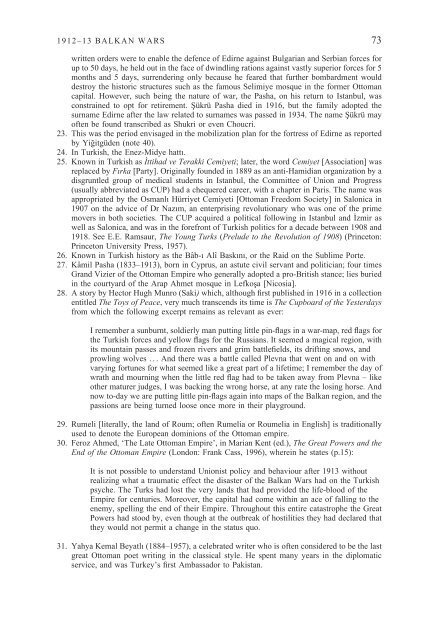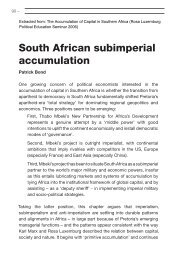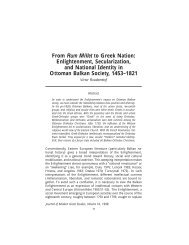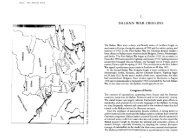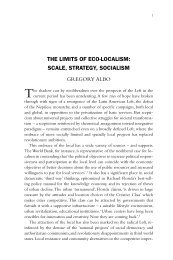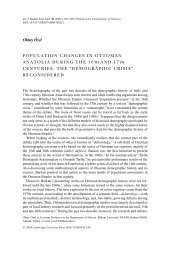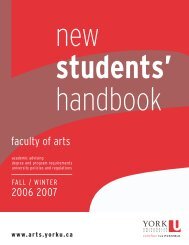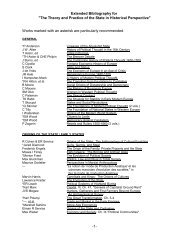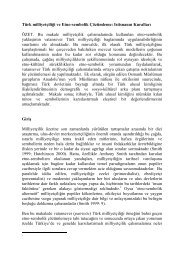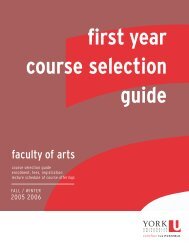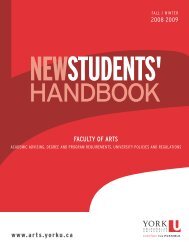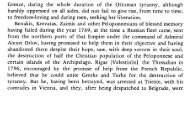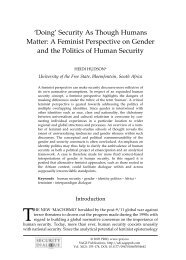Wasti, S. T. "The 1912-13 Balkan Wars and the Siege of Edirne"
Wasti, S. T. "The 1912-13 Balkan Wars and the Siege of Edirne"
Wasti, S. T. "The 1912-13 Balkan Wars and the Siege of Edirne"
Create successful ePaper yourself
Turn your PDF publications into a flip-book with our unique Google optimized e-Paper software.
<strong>1912</strong>–<strong>13</strong> BALKAN WARS 73written orders were to enable <strong>the</strong> defence <strong>of</strong> Edirne against Bulgarian <strong>and</strong> Serbian forces forup to 50 days, he held out in <strong>the</strong> face <strong>of</strong> dwindling rations against vastly superior forces for 5months <strong>and</strong> 5 days, surrendering only because he feared that fur<strong>the</strong>r bombardment woulddestroy <strong>the</strong> historic structures such as <strong>the</strong> famous Selimiye mosque in <strong>the</strong> former Ottomancapital. However, such being <strong>the</strong> nature <strong>of</strong> war, <strong>the</strong> Pasha, on his return to Istanbul, wasconstrained to opt for retirement. Şükrü Pasha died in 1916, but <strong>the</strong> family adopted <strong>the</strong>surname Edirne after <strong>the</strong> law related to surnames was passed in 1934. <strong>The</strong> name Şükrü may<strong>of</strong>ten be found transcribed as Shukri or even Choucri.23. This was <strong>the</strong> period envisaged in <strong>the</strong> mobilization plan for <strong>the</strong> fortress <strong>of</strong> Edirne as reportedby Yiğitgüden (note 40).24. In Turkish, <strong>the</strong> Enez-Midye hattı.25. Known in Turkish as İttihad ve Terakki Cemiyeti; later, <strong>the</strong> word Cemiyet [Association] wasreplaced by Fırka [Party]. Originally founded in 1889 as an anti-Hamidian organization by adisgruntled group <strong>of</strong> medical students in Istanbul, <strong>the</strong> Committee <strong>of</strong> Union <strong>and</strong> Progress(usually abbreviated as CUP) had a chequered career, with a chapter in Paris. <strong>The</strong> name wasappropriated by <strong>the</strong> Osmanlı Hürriyet Cemiyeti [Ottoman Freedom Society] in Salonica in1907 on <strong>the</strong> advice <strong>of</strong> Dr Nazım, an enterprising revolutionary who was one <strong>of</strong> <strong>the</strong> primemovers in both societies. <strong>The</strong> CUP acquired a political following in Istanbul <strong>and</strong> İzmir aswell as Salonica, <strong>and</strong> was in <strong>the</strong> forefront <strong>of</strong> Turkish politics for a decade between 1908 <strong>and</strong>1918. See E.E. Ramsaur, <strong>The</strong> Young Turks (Prelude to <strong>the</strong> Revolution <strong>of</strong> 1908) (Princeton:Princeton University Press, 1957).26. Known in Turkish history as <strong>the</strong> Bâb-ı Alî Baskını, or <strong>the</strong> Raid on <strong>the</strong> Sublime Porte.27. Kâmil Pasha (1833–19<strong>13</strong>), born in Cyprus, an astute civil servant <strong>and</strong> politician; four timesGr<strong>and</strong> Vizier <strong>of</strong> <strong>the</strong> Ottoman Empire who generally adopted a pro-British stance; lies buriedin <strong>the</strong> courtyard <strong>of</strong> <strong>the</strong> Arap Ahmet mosque in Lefkoşa [Nicosia].28. A story by Hector Hugh Munro (Saki) which, although first published in 1916 in a collectionentitled <strong>The</strong> Toys <strong>of</strong> Peace, very much transcends its time is <strong>The</strong> Cupboard <strong>of</strong> <strong>the</strong> Yesterdaysfrom which <strong>the</strong> following excerpt remains as relevant as ever:I remember a sunburnt, soldierly man putting little pin-flags in a war-map, red flags for<strong>the</strong> Turkish forces <strong>and</strong> yellow flags for <strong>the</strong> Russians. It seemed a magical region, withits mountain passes <strong>and</strong> frozen rivers <strong>and</strong> grim battlefields, its drifting snows, <strong>and</strong>prowling wolves . . . And <strong>the</strong>re was a battle called Plevna that went on <strong>and</strong> on withvarying fortunes for what seemed like a great part <strong>of</strong> a lifetime; I remember <strong>the</strong> day <strong>of</strong>wrath <strong>and</strong> mourning when <strong>the</strong> little red flag had to be taken away from Plevna – likeo<strong>the</strong>r maturer judges, I was backing <strong>the</strong> wrong horse, at any rate <strong>the</strong> losing horse. Andnow to-day we are putting little pin-flags again into maps <strong>of</strong> <strong>the</strong> <strong>Balkan</strong> region, <strong>and</strong> <strong>the</strong>passions are being turned loose once more in <strong>the</strong>ir playground.29. Rumeli [literally, <strong>the</strong> l<strong>and</strong> <strong>of</strong> Roum; <strong>of</strong>ten Rumelia or Roumelia in English] is traditionallyused to denote <strong>the</strong> European dominions <strong>of</strong> <strong>the</strong> Ottoman empire.30. Feroz Ahmed, ‘<strong>The</strong> Late Ottoman Empire’, in Marian Kent (ed.), <strong>The</strong> Great Powers <strong>and</strong> <strong>the</strong>End <strong>of</strong> <strong>the</strong> Ottoman Empire (London: Frank Cass, 1996), wherein he states (p.15):It is not possible to underst<strong>and</strong> Unionist policy <strong>and</strong> behaviour after 19<strong>13</strong> withoutrealizing what a traumatic effect <strong>the</strong> disaster <strong>of</strong> <strong>the</strong> <strong>Balkan</strong> <strong>Wars</strong> had on <strong>the</strong> Turkishpsyche. <strong>The</strong> Turks had lost <strong>the</strong> very l<strong>and</strong>s that had provided <strong>the</strong> life-blood <strong>of</strong> <strong>the</strong>Empire for centuries. Moreover, <strong>the</strong> capital had come within an ace <strong>of</strong> falling to <strong>the</strong>enemy, spelling <strong>the</strong> end <strong>of</strong> <strong>the</strong>ir Empire. Throughout this entire catastrophe <strong>the</strong> GreatPowers had stood by, even though at <strong>the</strong> outbreak <strong>of</strong> hostilities <strong>the</strong>y had declared that<strong>the</strong>y would not permit a change in <strong>the</strong> status quo.31. Yahya Kemal Beyatlı (1884–1957), a celebrated writer who is <strong>of</strong>ten considered to be <strong>the</strong> lastgreat Ottoman poet writing in <strong>the</strong> classical style. He spent many years in <strong>the</strong> diplomaticservice, <strong>and</strong> was Turkey’s first Ambassador to Pakistan.


